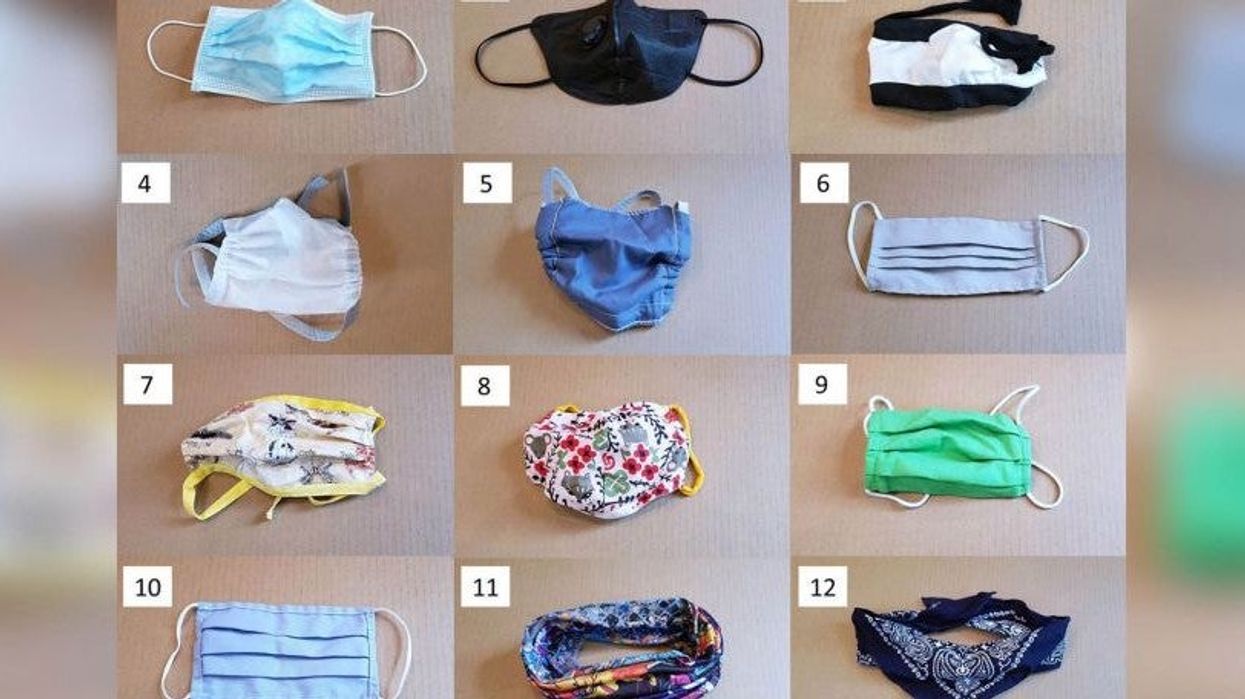Greg Evans
Aug 12, 2020

Emma Fischer, Duke University
Face masks have become the must-have accessory of 2020 as they can literally save your and other people's lives.
While anti-maskers will protest their right to not wear one the rest of us will cover our faces in public spaces to try and prevent the spread of Covid-19. With that in mind what at the best mask to keep coronavirus at bay. Well, thanks to researchers at Duke University in Durham, North Carolina, we now know.
A new study, published by Science Advances, looked at 14 different types of masks to see which was the best. These ranged from surgical masks, cotton masks and more fashionable choices like bandanas.
As reported by the New York Postmasks that are favoured by medical professionals were deemed to a better way to stop the spread of the virus, whereas knitted masks, bandanas and neck gaiters were the worst. The 14 different types of masks are listed below from best to worst:
1. Medical n95 mask
2. Surgical mask
3. Polypropylene and cotton
4. Polypropylene apron mask
5. Cotton mask with ties
6.Two-layer cotton with ties
7. Valved n95
8. Hand-sewn cotton
9. 'MAXIMA AT’ mask
10. Single-layer cotton
11. Pleated two-layer cotton
12. Knitted
13. Bandana
14. Neck gaiter
To conduct the test, the scientists had four different testers stand in a black box which contained a laser and a cellphone camera. The individuals then had to face the laser and say the words 'Stay healthy, people' five times while wearing the masks. The camera then recorded the number of droplets set had been released through the masks and an algorithm determined how many droplets had actually managed to make it into the air.
Dr. Martin Fischer, who was one of the authors on the study told CNN:
We were extremely surprised to find that the number of particles measured with the fleece actually exceeded the number of particles measured without wearing any mask. We want to emphasize that we really encourage people to wear masks, but we want them to wear masks that actually work. This is a very powerful visual tool to raise awareness that very simple masks, like these homemade cotton masks, do really well to stop the majority of these respiratory droplets.
Fascinating.
Top 100
The Conversation (0)













